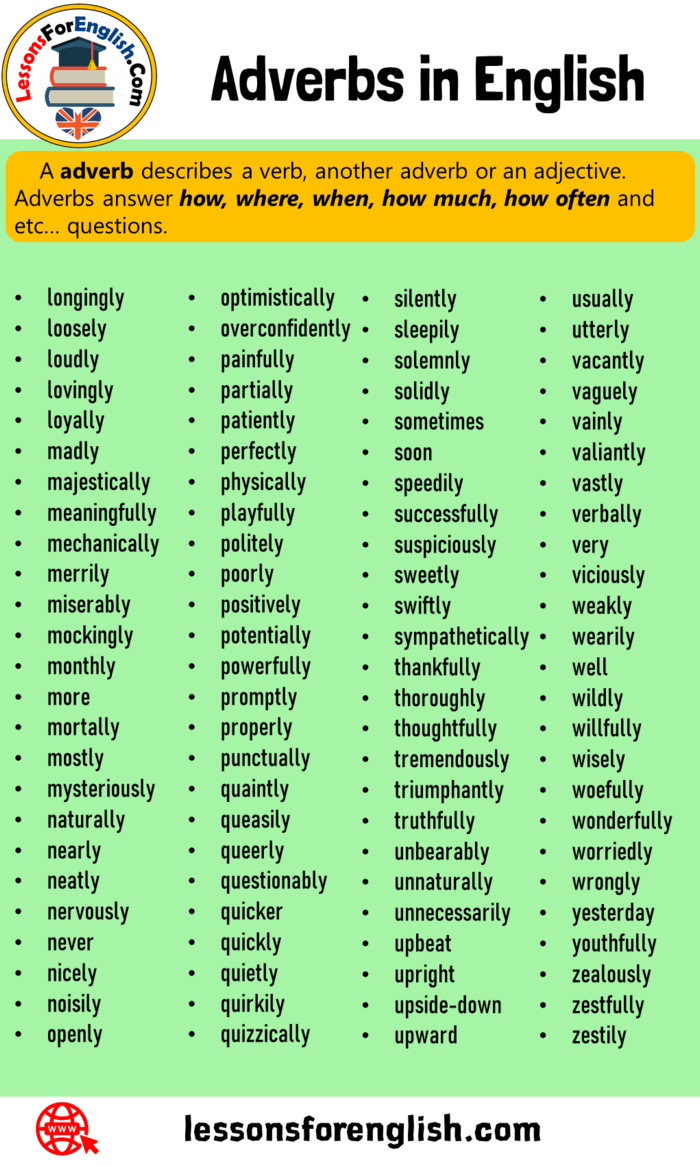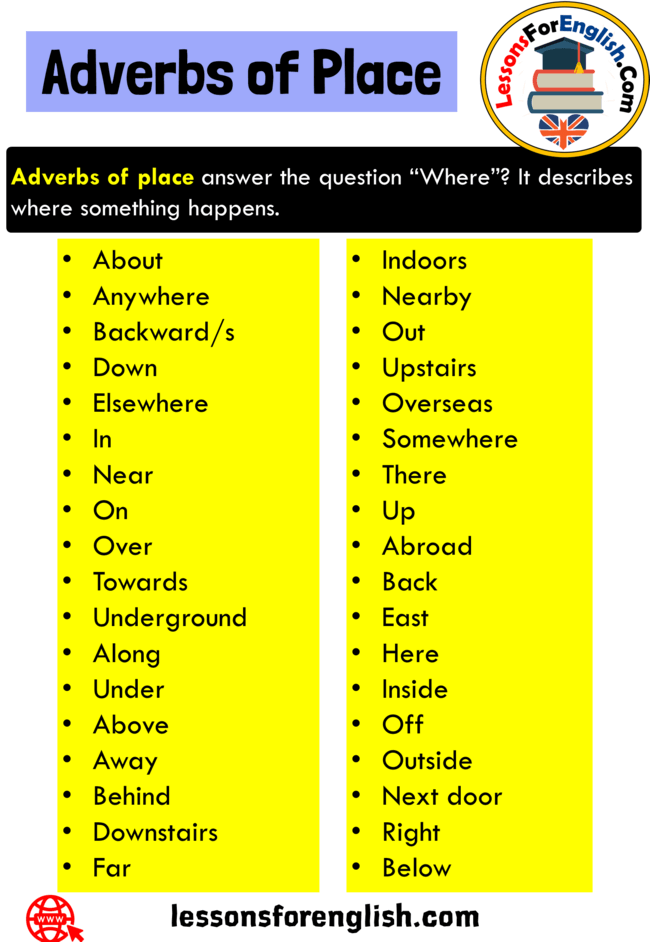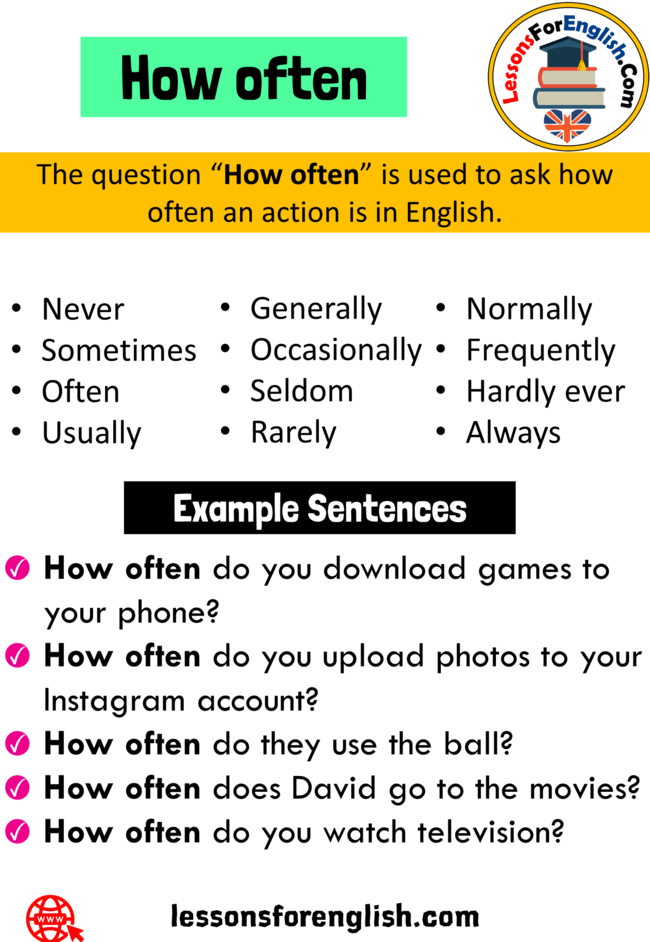Adverb Definition and 100 Examples wit Sentences

Table of Contents
Adverbs
As in any language, adverbs are known in English as words that characterize verbs in terms of Status, time, scarcity, and multiplicity. In this course, we touched on the subject of English adverbs for you and diversified the subject with various examples.
How Can I Tell If There Is An Adverbs in a Sentence?
First, to understand whether there is an adverb in a sentence, the verb, how? When? How much? you should ask such questions. After asking these questions to the verb, if you can get an answer, you have found the adverb.
How do Adjectives and Adverbs Differ?
From time to time, it can be confused whether a word is an adjective or an adverb. Remember that adjectives are nouns and come immediately before nouns. Adverbs, on the other hand, describe verbs and can be found at any point in the sentence.
How to Create Adverbs In English?
In general English adverbs are formed in the following ways:
‘-Ly’ jewelry is brought to the end of adjectives: The first of the most commonly used adverb –making methods in English is the introduction of-ly jewelry at the end of adjectives. For example:
Adjective: Hard / Adverb: Hardly
- This school is too hard. (Adjective)
- You solved this question hardly. (Adverb)
Adjective: Excellent / Adverb: Excellently
- Tomas is an excellent friend. (Adjective)
- Tomas has completed his homework excellently. (Adverb)
Adjective: Clear / Adverb: Clearly
- The Paris is clear tomorrow (Adjective)
- Bill could not speak very clearly (Adverb)
Adjective: Different / Adverb: Differently
- Is it a different pencil? (Adjective)
- It’s not going to be solved by talking differently. (Adverb)
Some Adjectives and Adverbs May Be the Same
In English, there are some adjectives and adverbs, which are also used as adverbs in the same state as adjectives. For example:
Fast: The word Fast is used both as an adjective and as an adverb, without taking any suffixes.
- Tom is a fast football player. (Adjective)
- Tom has run very fast. (Adverb)
Adverbs Questions
As we mentioned at the beginning of our article, we need to ask some questions about verbs in order to find adverbs. Let’s see what these questions are together:
How?
- How did he express himself to the principal?
- He made himself clear to the principal
When?
- When did Holley come from home?
- Holley came from home at night.
How Often?
- How often do you go to your town to visit her grandparents?
- Alice goes to her village once a year to visit her grandparents.
How Long?
- How long have they not come to you?
- They haven’t come to us in almost many years
Adverbs of Frequency
Adverbs of frequency are used to convey how often actions are performed in English. Frequency adverbs are used after the subject. There are six frequency adverbs in English. These:
- Always: Used to indicate that events are always repeated.
- Usually: Used to indicate that events are usually repeated.
- Often: Used to indicate that events are often repeated.
- Sometimes: Used to indicate that events are sometimes repeated.
- Seldom: Used to indicate that events are seldom repeated.
- Never: Used to indicate that events are never repeated.
Always:
- You always go home by metro.
Usually:
- You usually go to this school to read some news.
Often:
- You often get the flu in the summer.
Sometimes:
- Ella sometimes leaves the home late.
Seldom:
- You seldom join your friends to go out at dinner.
Never:
- We have never been to the London before.
Note: The ‘how often’ question is asked in the sentence to ask for frequency adverbs.
Apart from the frequency adverbs mentioned above, frequency adverbs consisting of more than one word are also available in English. This type of frequency adverbs is usually found at the end or beginning of a sentence.
- You go to school with your friend once a month.
- They go to the village as a whole parent every week.
- John goes to the cafe once a week.
” I want to speak English very fast ” have you said that before? Now that you’re learning English, the answer to that question is probably “yes.” Fluency is the goal of most English students. Just a little communication or bad English can’t be your goal. You may even be afraid to talk bad. It can be distressing for someone to hear you talking and say a bad speech. So the goal is fluency, but what about your current English? We can’t predict your response, but we know that it will be an adverb that tells you about your ability to speak the language. In this response, you can use an adverb such as hardly or fastly, or use more optimistic English adverbs such as extremely fluently!
Adverbs are widely used in the English grammatical world, but adverbs are difficult to predict. That’s why many language students think it’s confusing and daunting. But, you don’t have to worry, as this article is a guide to frequently used adverbs that will help you finally understand this topic. We hope that this article will help you not only speak better English but also significantly improve your writing skills.


